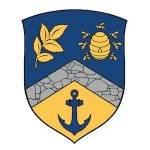November 2017
This morning I attended a seminar in Boston where George Weigel, the friend and well-regarded biographer of Pope Saint John Paul II, spoke about the enduring importance of Catholic education. Among other points, Weigel recounted Carol Wojtyla’s experience in attending elementary school in Wadewice, Poland in the first quarter of the 20th century. The Polish nation had been eradicated from the map of Europe in the late 18th century, yet despite the efforts of the political class to bury the idea of “Poland”, the idea if not the boundaries had endured for almost 125 years in the minds and hearts of the people. How did that happen? How was it possible for a forsaken people to sustain such a love for their country that no longer existed and to pass on that love from generation to generation?
Weigel pointed out that it is not politics that sustains a people, nor is it economic forces. Rather, it is the vital importance of culture – language, history, music, poetry, the written word, the stage, and of course religion – that sustains a people. Weigel drew a direct cause-effect relationship from Carol Wojtyla’s training in his elementary school years to his epic return to Poland as Pope John Paul in June of 1979, a trip that – literally – changed the history of the twentieth century by awakening the desire for freedom for suffering peoples throughout the world. Weigel explained that in 56 addresses over those memorable nine days in June 1979, John Paul did not appeal to political forces or economic forces but rather to the cultural heritage of his Polish youth, the cultural heritage he was immersed in in his elementary school days. His 1979 message resonated with his fellow Polish patriots because they too had been raised with profound respect for the same cultural heritage in the same schools by the same teachers. Within a year of John Paul’s visit, the gestation period for freedom in Poland ended when Lech Walesa climbed over a fence at the Gdansk shipyard and announced to the world the launch of the Solidarity movement. For those of us who lived through those days and the days that followed, even from our distance from the center of activities, these were exciting times indeed.
Weigel’s insights capture exactly what we intend to bring to our own mission at the Mill Brook School. We, too, will impart to young men a cultural heritage by emphasizing faith, virtue, and intellectual development. As Weigel pointed out, the enduring profile of a people’s civilization is found in its culture. We will seek to hold the Mill Brook School to those same standards. Join us!

